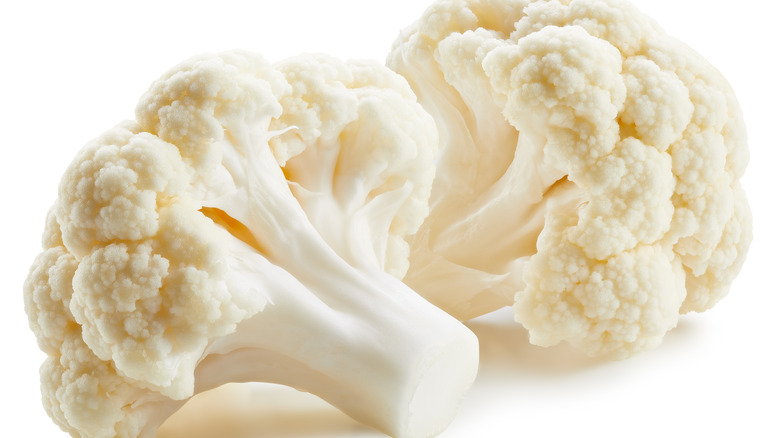Should You Really Avoid White Foods When Dieting?
We all want to live long, healthy lives, and our diets play a big role in making this happen. Most of us probably already know that we should eat lots of fruits, veggies, and whole grains, and keep our intake of sugar and red meat to a minimum. But while the basics are easy to grasp, there's still a lot of bad diet information about there. From wild fad diets to old wives tales, there is no shortage of incorrect eating advice that continues to persist, despite having no real factual, scientific evidence backing it up.
One old piece of diet advice that many of us might have heard before is that white foods should be avoided if one is trying to lose weight. This idea is sort of the inverse of the recommendation to "eat the rainbow" for a healthy diet. The thinking goes that one should aim to fill their plate every day with a wide variety of colorful fruits and vegetables in order to ensure they are getting plenty of beneficial vitamins, minerals, and phytochemicals (via Healthline). In contrast, white, colorless foods tend to be full of empty carbs, white flour, refined sugar, preservatives, and processed ingredients, and so should be avoided. But is there really any merit to this rule of thumb?
Not all white foods are created equal
As it turns out, the short answer is no. Basing your diet choices on the color of your food doesn't really have a strong basis in fact. While there are certainly white foods that are not particularly healthy, such as white bread, pasta, or just plain refined white sugar, there are also plenty of foods that are white in color and still have plenty of health benefits.
Bananas, for example, have a white flesh, but are loaded with potassium, vitamin B6, vitamin C, and fiber, which has been shown to improve heart health. Cauliflower is another great example of a white food that is chock-full of healthy vitamins, nutrients, and antioxidants, like fiber, vitamin C, vitamin K, vitamin B6, and folate, per Medical News Today. And even though potatoes are not permitted on diets such as keto, because they tend to be high in carbohydrates, they are also high in lots of healthy nutrients like fiber, Vitamin C, Vitamin B6, potassium, and antioxidants, and have even been shown to help improve blood sugar control and digestive health, according to Healthline.
Preparation methods can play a big role
How you prepare a food also has quite a bit to do with its health content. Just like almost all ingredients, white food can be made less diet-friendly if it is prepared in a way that raises its fat, salt, or calorie content. Frying potatoes, for example, adds lots of extra sodium and cholesterol to the vegetable, while baking or boiling them can help lower calories and make the dish a little healthier, per The Statesman.
So while it might be a good idea to try to avoid processed, overly refined, or fried foods, color alone is simply not enough to determine if a food is healthy or not. In short, diets are complex, and each person is different, requiring different amounts of calories, carbohydrates, and even sugar, depending on their individual body type, lifestyle, and activity levels. This is why one-size-fits-all weight loss advice is rarely beneficial. The idea that everyone should merely avoid all white foods when they are dieting is just too simplistic to really be taken as gospel. Generally, a better rule of thumb for weight loss might be to focus on eating moderate portions, getting exercise every day, and of course, making sure to eat your fruits and veggies — even if they happen to be a banana or a cauliflower.


